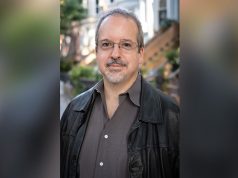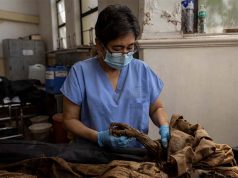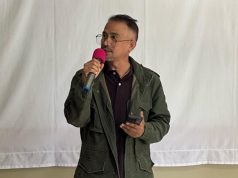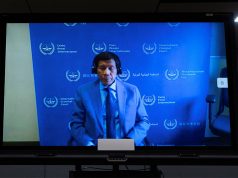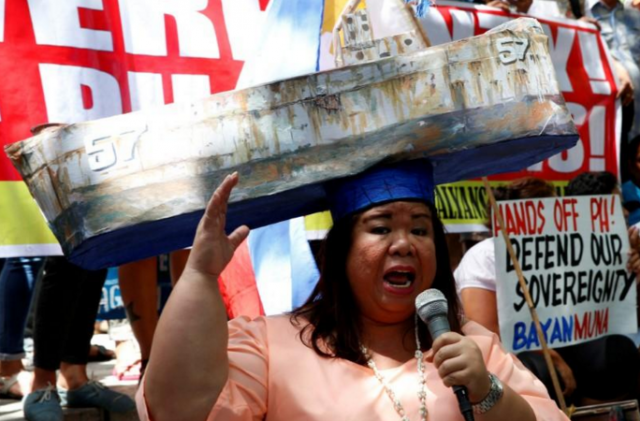
MANILA – Mae Paner is a policeman-turned-assassin, a widowed Zumba dancer, a photojournalist and an orphaned child. They are all characters in “Tao Po,” her new one-woman show against a bloody war on drugs in the Philippines.
Paner, better known by her stage name “Juana Change”, said she wanted to add her voice to the condemnation of President Rodrigo Duterte’s fierce 15-month-old campaign which has killed thousands of people.
“I feel very strongly that we have our work cut out for us as artists to wake people up, to wake our president up, and to tell him that we are against his war on drugs,” Paner told Reuters Television.
In “Tao Po” which was staged at the Cultural Center of the Philippines the past two weekends this month, Paner portrayed four characters who are affected by the drugs war, from the assassin grappling with his guilt and the journalist scarred by images of the nightly carnage, to widows and orphans crying out for justice.
Filipinos remain largely supportive of the campaign as a solution to tackling rampant crime, which Duterte says stems mostly from drug addiction.
Human rights groups, the Catholic Church and opposition lawmakers have raised alarm about the killings that have focused largely on the urban poor and have not spared young people.
More than 3,800 people have been killed in police anti-drugs operations in the past 15 months and at least 2,100 other homicides were likely drug-related.
Police reject allegations by human rights groups that they are executing suspected users and dealers.
Some audience members who watched a recent performance of Paner’s play said they hoped it would prompt Filipinos to ask questions about the drugs war.
“The more this play is staged – wherever it may be shown, wherever more people can watch it – the more people can think and have much more informed opinions on this matter,” said Pastor Kakai Pamaran.




